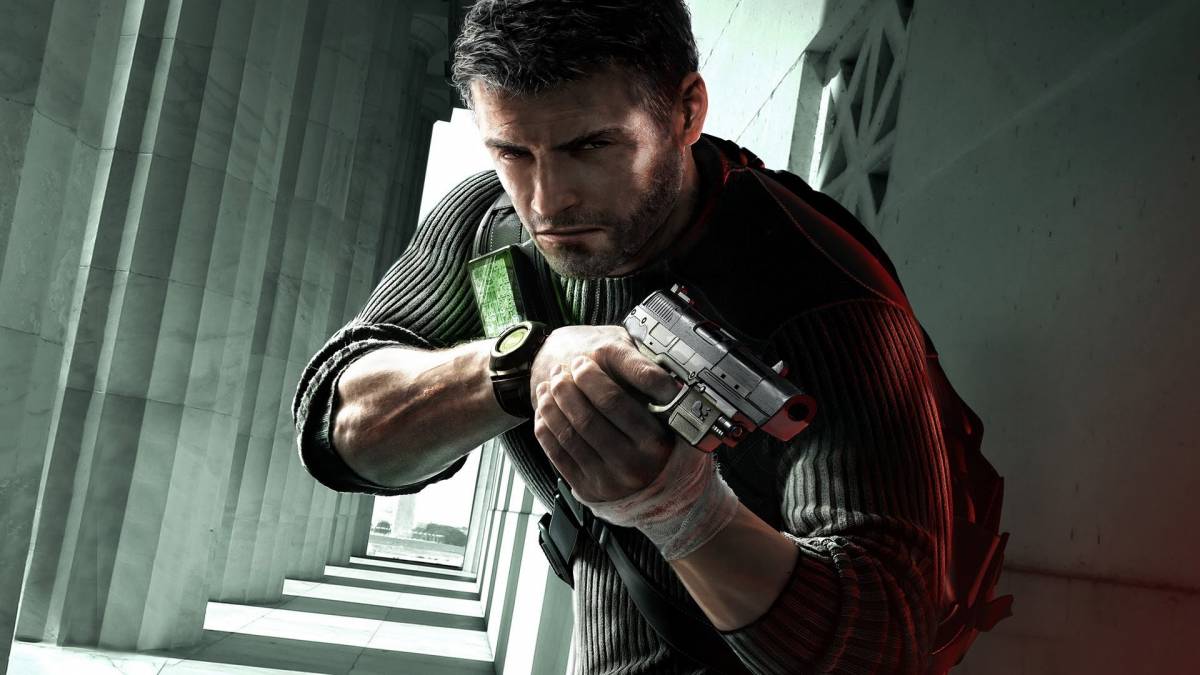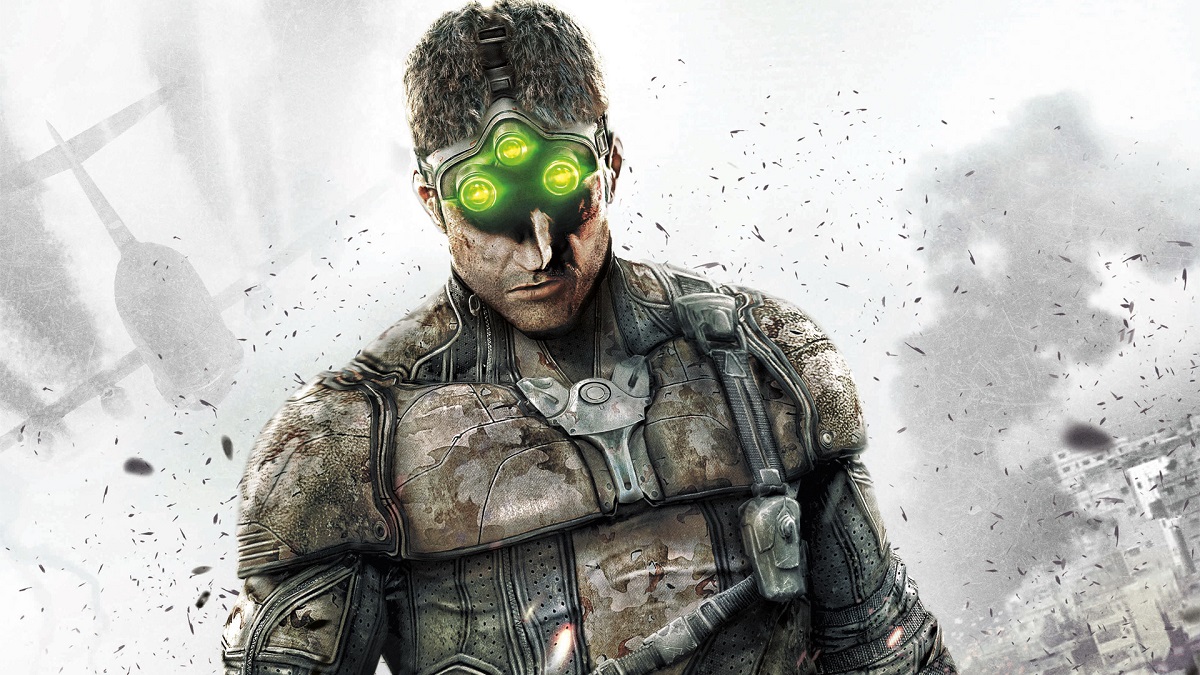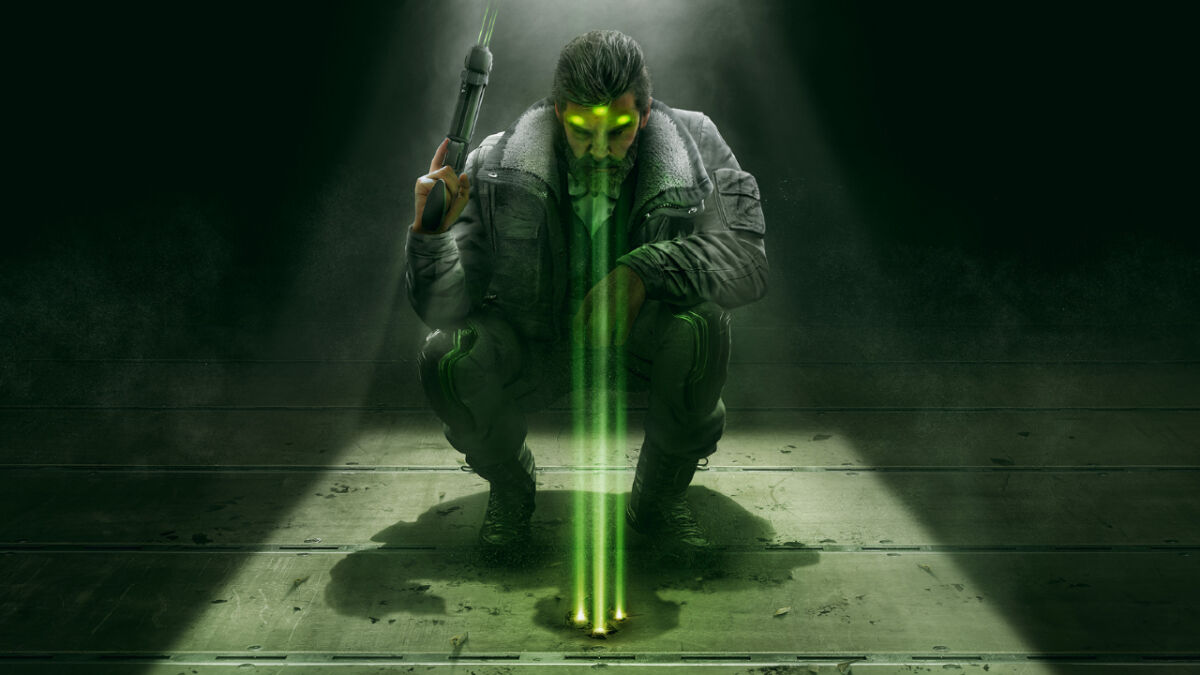The gaming industry and Tom Clancy have had quite the relationship over the past two decades, with many games utilising the author’s name launching on practically every platform under the sun. Between the various Rainbow Six games, Ghost Recon, The Division and everyone’s favourite, Endwar (remember that one?), there’s plenty of games that give you the classic Tom Clancy experience: dudes with big guns taking down bad guys. However, for many, one series stands out above the rest, and it’s Splinter Cell.
The stealth action series from Ubisoft, Splinter Cell is often considered alongside the Metal Gear Solid series as one of the best franchises of the stealth genre. Unfortunately, despite the incredible goodwill the franchise has, it’s been nearly a decade since the last mainline Splinter Cell release, so we have to ask: will we ever see a new Splinter Cell game?
The History of Splinter Cell

The Splinter Cell series started out in 2002, launching on the PC, PS2, original Xbox, Gamecube and was even ported to the GBA. Developed in the Unreal 2 engine, Splinter Cell allows players to make better use of the light versus the dark when stealthing through the levels. In the shadows, main character Sam Fisher was incredibly hard to see, allowing him to strike. Players could even shoot out light sources to make stealth even easier, which might not seem like a big deal with today’s games, but back then, it was revolutionary.
The series continued with Splinter Cell: Pandora Tomorrow, which launched in 2004 for every platform that the original game launched on. As you’d expect with a straightforward sequel, Pandora Tomorrow introduced a couple of new abilities for Sam Fisher, including a whistle that could be used to distract enemies. Those improvements were expanded on in 2005’s Splinter Cell: Chaos Theory for PC, PS2, Xbox and Gamecube, which featured a new combat knife, and maps were expanded to become a lot more open and freeform when completing missions. Arguably, Chaos Theory is seen as the pinnacle of the franchise by fans.
Between main games, Ubisoft managed to cobble a solo outing for Sam Fisher in the form of Splinter Cell: Essentials, which launched for the PSP in 2006. A stealth action game dropping on the PlayStation Portable made sense, especially with the success of Syphon Filter: Dark Mirror and Logan’s Shadow on the same platform. Unfortunately, Essentials was quite the critical flop, with many reviewers stating that the game fails to effectively translate the franchise’s gameplay and controls to the PSP.
2006 also saw the release of Splinter Cell: Double Agent, which is where the series really started to try new ideas, the main one here being a morality-like system. Sam spends the majority of the game trying to infiltrate the John Brown’s Army, a terrorist organisation with plans to detonate various bombs, meaning Sam often has to make choices that put him into direct conflict with his NSA handlers. The game becomes a delicate balancing act, as you’re trying to do bad things to fit in with the terrorists, while also trying not to go too far and upset the NSA.
Intriguingly, as Double Agent was a cross-generational title, multiple versions of the game were developed, with PC, PS3 and Xbox 360 players receiving one version of the game while the PS2, Xbox, Gamecube and Wii versions of the game were completely different. Cross-gen games were commonplace then, but most offered the same experience with better graphics. Double Agent’s dual versions were totally different. While the characters and overarching plot are the same, the way things play out couldn’t differ more.
After five Splinter Cell games in the space of five years, it’d take four years to see the series re-emerge once again in the form of Splinter Cell: Conviction, which redefined the core gameplay of the series. By redefine, that basically means turn the game into a bit more of a generic stealth action game, more emphasis on the action, but I can’t say that’s necessarily a bad thing. Conviction was the first Splinter Cell game I ever played and I loved it, so clearly the transition worked in some ways. It certainly was a departure from the established norm, which might have upset the core fanbase.
Conviction’s main gimmick was the mark and execute mechanic, which rewarded players who performed stealth takedowns with marks. Players could then mark up to four enemies in Fisher’s line of sight to headshot in one fell swoop. It was a highly cinematic feature, but also an incredibly effective gameplay tool that made the game’s stealth much more accessible and enjoyable.
The last full game in the series, Blacklist, saw Sam Fisher lead his own clandestine unit on a trip around the world. Blacklist built on the foundation established in Conviction, improving the mark and execute mechanic so that you could perform it while moving. The campaign also included a host of co-op missions that saw Sam work together with a CIA operative by the name of Isaac Briggs.
Where’s The Series Now?

To everyone’s surprise, possibly even Ubisoft, Blacklist would prove to be the last game in the Splinter Cell series, despite the open-ended nature of its ending. While the game reviewed pretty well, hovering around the low to mid-80s on Metacritic, the game failed to meet sales expectations for Ubisoft. Ubisoft stated they were hoping for Splinter Cell: Blacklist to reach 5 million copies sold, but a few months after the game launched, it was announced that the game only reached 2 million.
While we haven’t see a new game in the Splinter Cell series since 2013, we have spotted Sam Fisher turning up in a couple of other Ubisoft games, most notable being Ghost Recon Wildlands and Ghost Recon Breakpoint for a series of missions, Rainbow Six Siege as a playable character, Tom Clancy’s Elite Squad and even as an easter egg in Far Cry: New Dawn. Clearly, Sam Fisher is the lynchpin behind an Ubisoft Cinematic Universe.
Okay, that’s a stretch, but it’s clear that Ubisoft aren’t willing to simply forget Sam Fisher’s existence, unlike some of the other dead franchises we’ve covered. As far as Ubisoft’s concerned, Fisher is still relevant and has a place amongst all the other Tom Clancy properties they’re working on. Honestly, it’s shocking that he’s not made his way into The Division in some way, tying everything together in a neat little bow. Hell, make him a DLC character for Roller Champions or Scott Pilgrim vs The World: The Game. Why not?
Fan support for Sam Fisher has always been vocal and enormous too, with fans reacting extremely negatively to the news that longtime voice actor Micheal Ironside wouldn’t be reprising the role of Sam Fisher in Blacklist. Petitions were even created pleading with Ubisoft to reverse their casting decision. As for the decision to bring Fisher over to Rainbow Six Siege, that wasn’t exactly met with excitement from Splinter Cell’s subreddit community.
Will We See A New Game In The Splinter Cell Series?

It’s likely, I’d say. Ubisoft, if nothing else when it comes to their games, are tenacious. They’re still working on Beyond Good & Evil 2, Hyper Scape, Rainbow Six Quarantine (or Parasite or whatever its new name is) and Skull & Bones, projects that by all rights should have been cancelled a long time ago. Okay, maybe that’s a bit harsh on Quarantine, but for Skull & Bones? Other games have been cancelled for a lot less. If Ubisoft’s handling of Sam Fisher over the past couple of years has proven anything, it’s that they’re still trying to find a place for their precious sneak man to make a triumphant comeback.
Ubisoft top brass have expressed interest in the past in developing a new Splinter Cell game, with CEO Yves Guillemot stating at E3 2017 that: “all the Clancy games are taken care of. It’s just we have quite a lot on our plate at the moment…[A]ll the Clancy games are really coming along, so we are not forgetting Splinter Cell.” In 2019, Julian Gerighty also made the claim that he was working on a Splinter Cell game, but the claim was disputed by Ubisoft themselves. As far as a new game goes, that’s the last we’ve heard.
On top of that, Ubisoft and Netflix have penned a deal for the streaming service to create an animated series based on the Splinter Cell property, similar to the incredibly successful Castlevania series. John Wick writer Derek Kolstad is serving as the executive producer for the series, and while that doesn’t necessarily confirm that Fisher is going to be checking into The Continental any time soon, it showcases the reverence that the Splinter Cell name commands. Ubisoft have identified a winning formula in anime adaptations, and have brought on one of the people responsible for cinema’s biggest pop culture phenomenon to bring it to life.
While I don’t think a future game’s success will be intrinsically linked to the success of the animated show (a new game will happen regardless), I do believe that this series is a good chance for Ubisoft to gauge player interest in the franchise. If reception to the Splinter Cell series sets some new records for Netflix, or manages to exceed Ubisoft’s expectations, perhaps that’ll force their hand.
Splinter Cell, and Sam Fisher as a whole, is too good of a property not to do anything with, especially when you consider the popularity of the game’s Spies vs Mercs mode. Honestly, Ubisoft could just repackage and release it as a live-service game if they want to have their “not all games will be AAA going forward” cake and wash it down with a side of “Splinter Cell is back, baby”. I’m not saying it’ll be a popular choice, but they could do it.
Whether the new Splinter Cell game ends up being a mainline release or just some kind of free-to-play multiplayer game that’s just some bloated, microtransaction heavy mess, it remains to be seen. However, Sam Fisher has made a habit of striking from the darkness when we least expect it, so stay on your toes.
READ MORE: Will Rockstar Ever Make Bully 2?
Some of the coverage you find on Cultured Vultures contains affiliate links, which provide us with small commissions based on purchases made from visiting our site.
